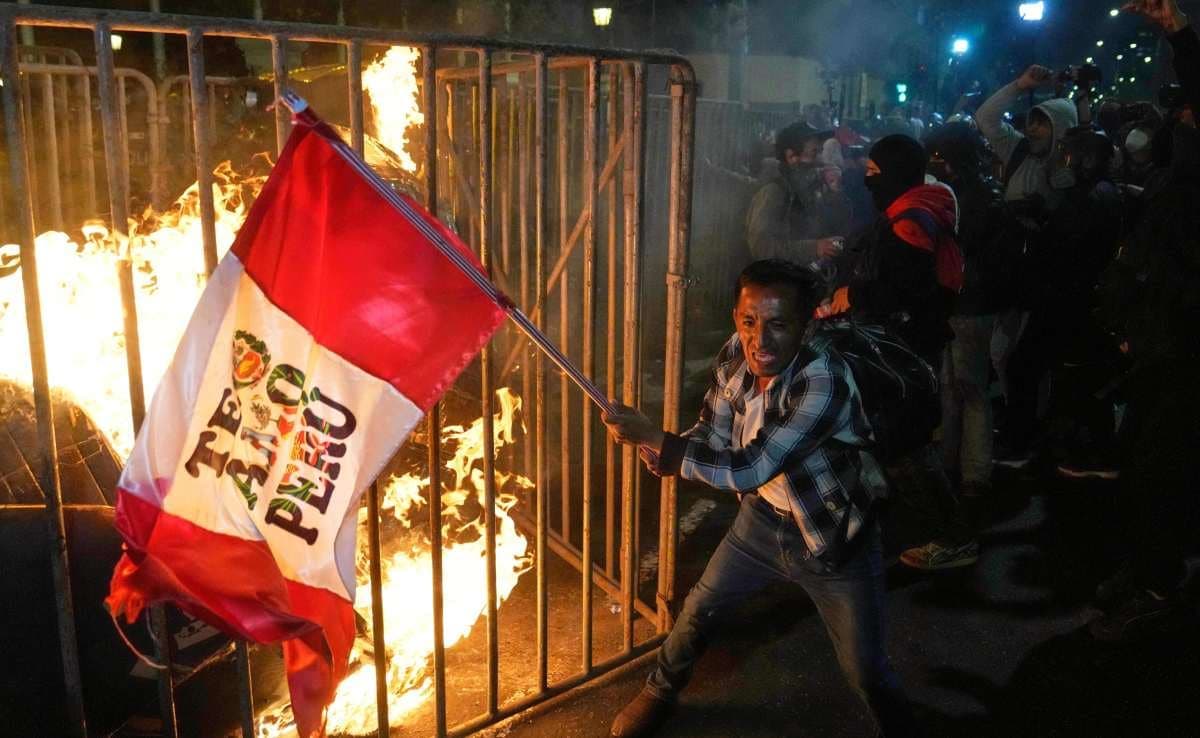We're loading the full news article for you. This includes the article content, images, author information, and related articles.
Peru's interim president has declared a state of emergency in Lima and Callao, granting the military powers to patrol streets and restrict freedoms, a move with potential implications for democratic governance and human rights

Peru's interim President, Jose Jeri, on Tuesday, October 21, 2025, declared a 30-day state of emergency in the capital, Lima, and the neighbouring port of Callao. This decision, effective Wednesday, October 22, 2025, at midnight EAT, allows the government to deploy the army for street patrols and impose restrictions on fundamental rights, including freedom of assembly. The declaration follows weeks of anti-government protests fueled by concerns over corruption and escalating organised crime across the South American nation.
The state of emergency marks President Jeri's first significant action since assuming office nearly two weeks ago. His tenure began amidst a deepening political crisis that saw lawmakers impeach the elected President, Dina Boluarte, earlier this month. Boluarte faced accusations of corruption and was blamed for the surge in crime, leading to widespread public discontent and protests.
Under Peruvian law, a state of emergency grants the executive branch exceptional powers. These typically include the suspension of certain constitutional rights, such as the inviolability of the home, freedom of transit, and freedom of assembly. The deployment of military personnel to assist police in maintaining public order is also permitted. Such measures are usually temporary and subject to review, though their implementation often sparks debate regarding the balance between security and civil liberties.
In a televised address to the nation, President Jeri stated, "Crime has increased disproportionately in recent years, causing immense pain to thousands of families and further hindering the country’s progress. But that’s over. Today, we begin to change the narrative of insecurity in Peru." He further added, "We are moving from the defensive to the offensive in the fight against crime, a fight that will allow us to regain peace, tranquility, and the trust of millions of Peruvians."
While intended to restore order, the declaration of a state of emergency carries inherent risks. Critics often raise concerns about potential abuses of power, excessive force by security forces, and the suppression of legitimate dissent. For Kenya, a nation that has experienced its own periods of political unrest and debates over security measures, Peru's situation offers a case study in the delicate balance between maintaining public order and upholding democratic freedoms. The long-term impact on Peru's democratic institutions and human rights record will be closely watched by international observers.
The extent to which the state of emergency will effectively curb crime and quell protests remains uncertain. There are also unanswered questions regarding the specific operational guidelines for military involvement and the mechanisms for accountability should human rights violations occur. The opposition's response to these new measures and their potential to further escalate tensions are also key unknowns.
The 30-day state of emergency is set to expire on Friday, November 21, 2025, unless extended by the Peruvian government. During this period, security forces will be tasked with implementing the new directives. The international community, including human rights organisations, is expected to closely monitor the situation on the ground.
Observers will be keenly watching for any reports of human rights abuses, the effectiveness of the measures in reducing crime, and the public's reaction to the increased military presence. The political stability of Peru and the future of its democratic processes will largely depend on how the government navigates this period of heightened tension and exceptional powers.
Keep the conversation in one place—threads here stay linked to the story and in the forums.
Sign in to start a discussion
Start a conversation about this story and keep it linked here.
Other hot threads
E-sports and Gaming Community in Kenya
Active 9 months ago
The Role of Technology in Modern Agriculture (AgriTech)
Active 9 months ago
Popular Recreational Activities Across Counties
Active 9 months ago
Investing in Youth Sports Development Programs
Active 9 months ago